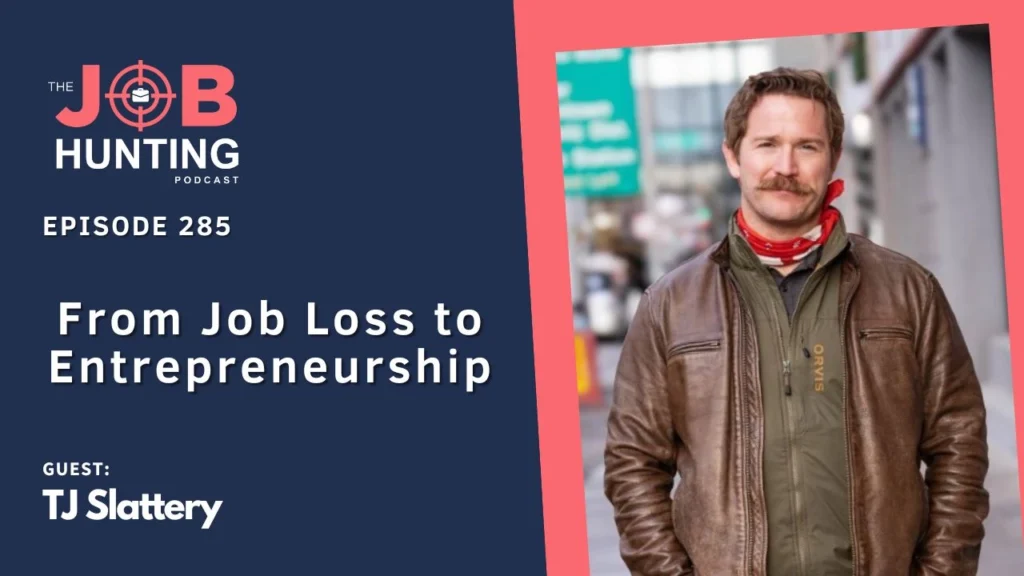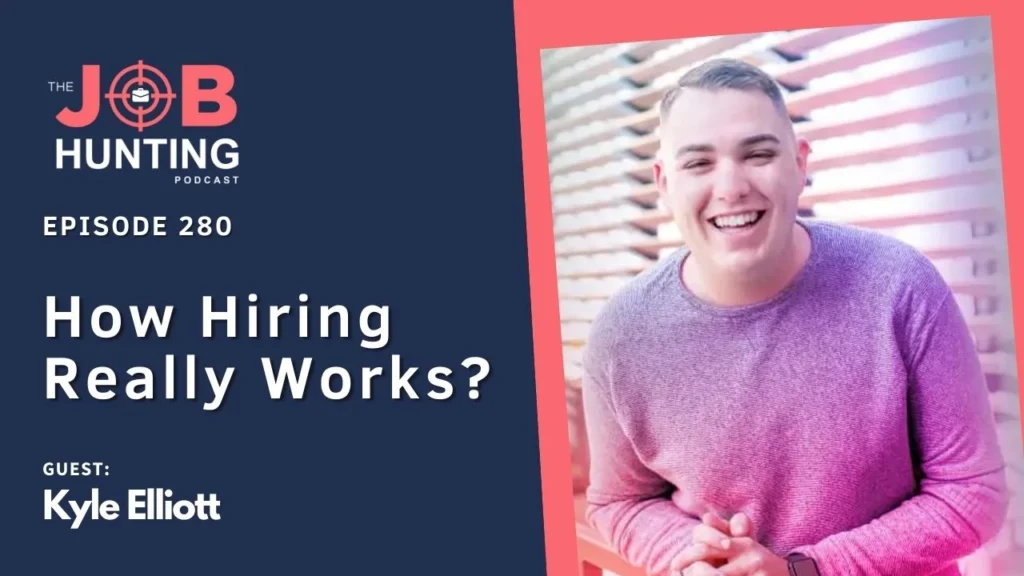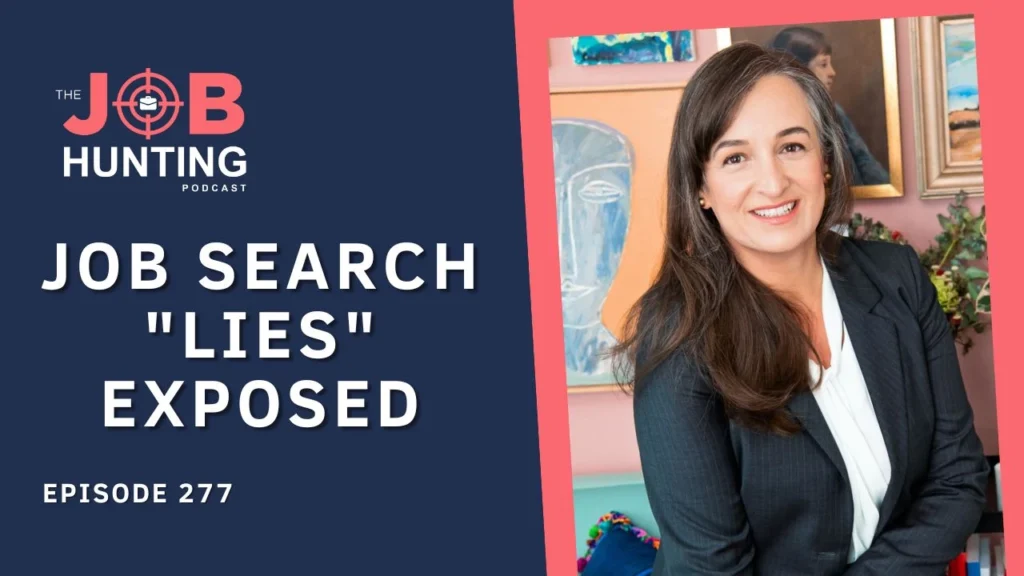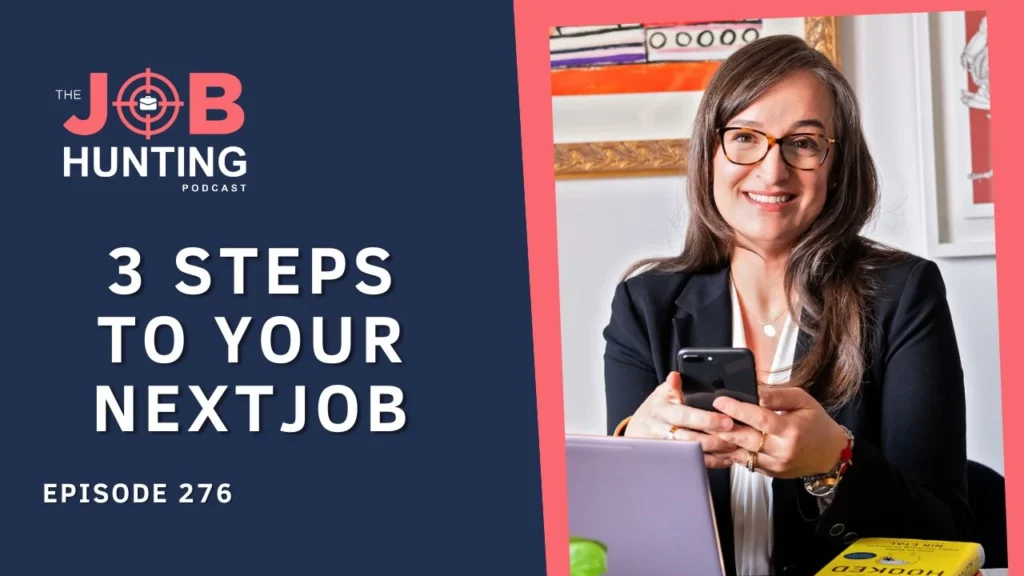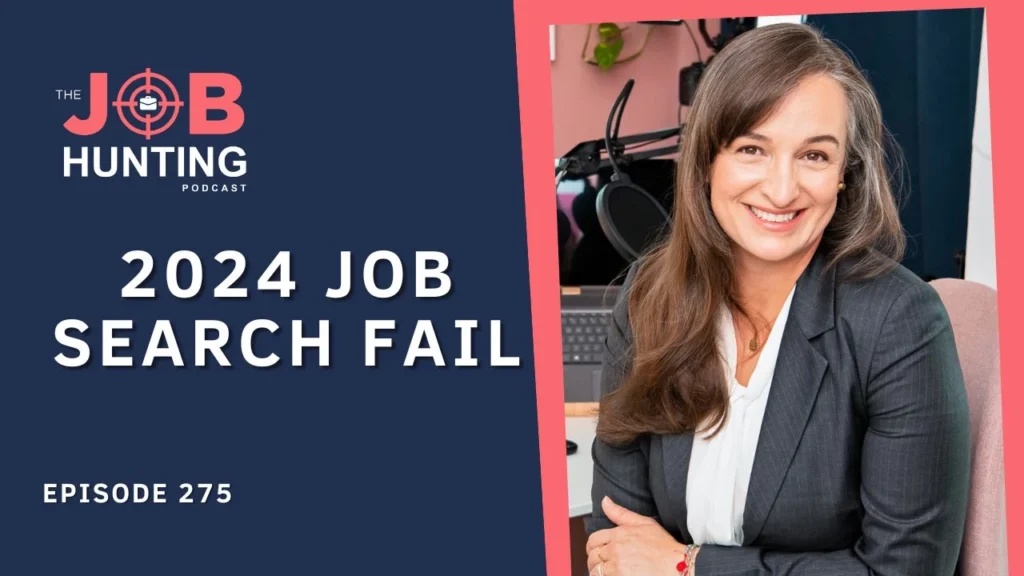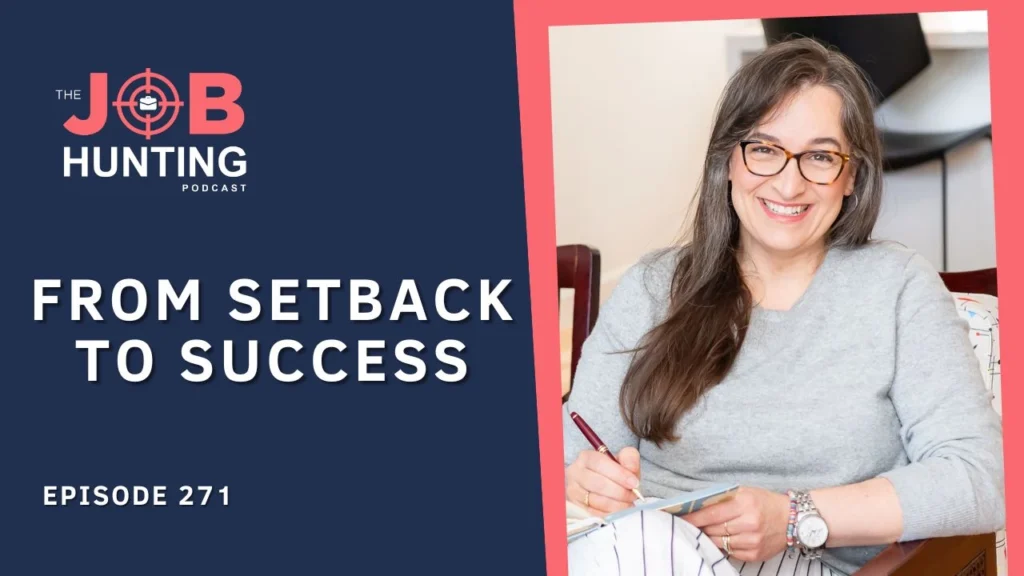Hello everyone and welcome back to the Job Hunting podcast. And I hope that you have already subscribed to this podcast. If you’re a professional looking for work, I think this podcast is for you. So wherever you have found.
Please subscribe. You know, I have been dealing with my own setback for the past couple of weeks, and of course my clients have lots of setbacks all the time. I’m not inspired by any client in particular because I often, when I’m on. Social media when I’m, you know, excited about achievements from my clients, I share them with you and I say, you know, my client just got a new job, just signed a new contract.
I get super excited and happy for them of course, and for myself. Because I like to feel like I’ve helped them and that we’ve achieved something together, and it’s so special to me. But of course, in order to get to. Ultimate successful welcome. A lot of things have happened along the way and not all of them are great, and it’s not linear from start to finish.
The story arc from the point when somebody starts working with me to the time they. Graduate with A job is not linear. It’s not like up and up and up and up. We learn along the way. We fail along the way. It’s ups and downs. It’s sometimes very frustrating. So I’d like to share with you some tips and ideas and share with you also my personal experience of how I dealt with setbacks in the best.
Setbacks make you stall on a project that you have on. You know, it could be a project of your life, or it could be job hunting, or it could be whatever it is that you’re doing. Trading for a marathon, you lose. Progress towards your goal and it keeps you from gaining ground, from moving forward, from achieving the things that you’ve planned to achieve.
So examples of setbacks in your career could be not getting the job that you want. You know, if you want to go into more detail, it could be not getting the interview for that special job that, you know, dream job, that you think is so great for you and you. Even get an interview for it, or you get interviewed many times like some of my clients, and in the end, the job isn’t yours.
You don’t get a promotion that you really wanted. You get the job, but you don’t like it. In fact, you hate it. It’s such a setback. You know when you get disappointed with your new. Sometimes you make a huge career change. Like you go completely 180 on your career and then you realize it was a big mistake.
You get really sick or unwell. It could be physical, it could be mental. Life gets in the way. And it affects, you know, your career progression in that sense. you are made redundant from a job that you really liked. And I mentioned a job that you really liked because as I was explaining to someone yesterday, being made redundant from a job you don’t like is actually a good thing.
you come out of it with some money in your pocket and you can move on to something else. But when you really like a job, which it was my case, I was made redundant from a job that I really enjoy doing. It can be really sad and very hard to understand. Are there other cases? I’m sure there are. If you can think of other setbacks that you have experienced in your career and you want to share with me, I would love to hear from you.
If you get the newsletter with this new episode, you can reply back or you can send me a message on social media and I’ll get that. So please share with me if you have had other setbacks in your career.
So how do you overcome it? I will share with you some of my tips. These are just things that I’ve written down today.
At the end of a very long day, I’m cold. It’s been a longer day, probably longer than it should be. I should have stopped working about two hours ago, if I’m honest with you. What I was thinking just before pressing record was that if I don’t get these ideas out of my head, I actually don’t sleep well because I keep thinking about it as I’m trying to sleep.
So for me, it’s actually better to brain them my ideas on you. Apologies for that , but it, makes for a better sleeping routine for me later on. I’m going to share these steps with you, but first let me tell you what my current setback is. I, experience chronic pain. You know, it’s not something that has just started, it’s been decades.
I’m used to it and sometimes it flares up and it did flare up a week or so ago, more than a week, two weeks ago, and I’m still dealing with it. So it’s really intense and I’ll tell you how I’m dealing. right now as I share with you my tips.
So my tip number one for you is to embrace your emotions, whatever they may be.
Give yourself permission to feel human. My great friend Hannah Pitman once told me this, and she did it in a very delicate way. And, you know, I was sharing with her probably too much, Huh? If you’re listening, apologies. I don’t even know if you remember this. It was many years ago. And she, you know, allowed me and told me how important it is to give yourself permission to be human, to feel everything you need to feel, to know it’s normal, to feel disappointed, especially when you’re so invested in what you’re doing and to do things well. You have to be invested to go through job hunting and to apply for jobs and to prepare for job interviews.
You have to be invested in it. That’s how you really show up with the right energy in front of people. So if you don’t get the job, of course you’re gonna feel disappointed. So acknowledge the pain of the setback or whatever emotions you’re feeling. Sometimes it’s not pain it could be anger, it could be, you know, whatever it is. Understand that the grief is normal and it’s part of being human and, feeling things and, you know, it’s all part of the process. In my experience when I have tried to rationalize the emotions too quickly at a very early stage, as soon as, something You know, a setback had happened to me. It wasn’t helpful.
You know, it’s too soon . It’s better to just let it flow and go through your body and your mind, and it will eventually subside. And that there is enough research that shows that you know, that, it can take a few minutes. It can take a few hours, it can take a couple of days. Everybody is different, I think it varies according to how exposed you are with setbacks. You know, if you’ve never had a setback in your life, it will be more of a shock. if, you know, and sometimes you have many, many setbacks, but you are on a, sort of an an emotional spiral. You know, counseling can really help with that because it can really get to you.
And in fact, I have clients that, you know, because of job hunting and other things going on in their lives, have decided to work with bigger team, more support including counseling. And I think that that has been very beneficial for many people, myself included. My experience is that you know, lots of setbacks, sickness, redundancy So in my personal experience, the types of setbacks that I have experienced, and there have been lots of them because I’m 50 years old and I’ve had a full life and I’ve taken risks and I’ve been, you know, quite bold in choices I’ve made in my life.
But, Personally and professionally. So I’ve had, you know, sickness, I’ve had redundancies, I’ve had jobs that I accepted that I didn’t like. I, you know initiated career changes, especially early on in my, life and made choices that I then it and I had to do a 180 again . And that is all part of life.
And you know, that those failures. They didn’t scare me very early on, and I think I’ve mentioned this a couple of times before in previous episodes, because it was such an important milestone in my career. I participated in a program that’s organized by the United Nations called iTech. It’s, you know, not available in every country, but it was available in my home country in Brazil.
And I did it very young. I think I was maybe 25 when I enrolled and was accepted to do the program. It’s very hard to get in and one of the prerequisites to get into that program is you have to have failed three times. And that’s why it’s so hard to do it when you’re young, because it’s four entrepreneurs and.
You know, I had not failed in business three times, but in my interview, I, showcased that I had failed twice And I promised to fail the program. I know that the program had a, an entrepreneurial component. It had a project, and I said, I will fail the project . And I think that the fact that that program that was designed to be so amazing and inspirational and motivational for entrepreneurs had a failure criteria.
As a, an enrollment criteria made me think about failure in a very different way, and since then I haven’t been very afraid of it, but I still feel it. I still know when I need to give myself that permission to feel human and take time off. So that’s my first tip to embrace your emotions and understand that that’s part of, you know, especially the first stage of a setback.
Interestingly, I have had a conversation recently with one of my clients where we both acknowledged this, You know, he said it first and then I’m like, Yes, I have that too. This feeling that, you know, years go by and you think about a setback. and it makes your, hairs on your hands just go up , and it makes you want to shiver a bit because you just remember how bad that emotion was and that is important for us to know and to acknowledge that our careers and what happens to us professionally is also part of our life. It’s part of us. It has an emotional component to it. It’s not possible for us to just be rational when we’re being professional. Sometimes things will happen to us at work that will cause a strong emotional reaction, and you will remember that the good and the bad.
Unfortunately, our, minds are wired to always remember more the bad things and the good things. But I, you know, I think that as an exercise, to. Go back and think, what are the things that make me really like, want to, you know, crawl under the , under the carpet and forget that that happened.
On the other hand, remember all the amazing things that you have achieved so far in your career and never ever forget them. In my case, I do journaling and I have spoken about journaling a few times before. And it may help. You know, the journaling and the gratefulness exercise is well known. I will put a link in the show notes to some research or ideas for you to, follow if that is helping and, and that can help.
But like I said, don’t try to rationalize too soon what has happened to you. Just let the emotions flow through your body. They will go away eventually. And in fact, that’s also my tip number two is to shift away from the pain. If you want to recover and move on, you need to force yourself out of it.
Sometimes, you know, there needs to be a bit of an energy that comes from you to get you out of that. Feeling human , that situation where you are in grief, you need to move away from it. And it’s really hard sometimes. But that idea of moving away from the know that you received and thinking about it as a not yet, I’ve read that once and I think that that’s such an important way of understanding the need to move on.
you will next week hear Evan Son, who I interviewed for this podcast for episode 1 56. He’s the CEO of recruiter.com and he makes this important point as well. You know, if it’s not this job, it’s the next job. There’s plenty of jobs out there, so, My experience, I personally have needed to walk it out.
You know, I take long walks or I walk as much as I can, depending on my pain. I clean the house, you know, that sort of spring cleaning or any sort of reorganizing, you know, sometimes I see it in sitcoms or tv or TV shows that, you know, other people. Probably use that technique as well, , and it helps make clear my mind.
And most importantly, I need to laugh it out. You know, if I’m not laughing about my own situation, I will find a TV show that help. Me laugh Sheets Creek has been my go to recently. I mentioned it in a previous newsletter. You may have received it and that I had watched a few episodes of Sheri. It was because I really needed that laugh.
I needed that happiness That comes from watching a great TV show that I know I’m going to laugh. And I deal with setbacks regularly because I do have chronic pain and I often need to revisit my priorities to deal with, you know, my planning and reschedule things and re rethink how I’m going to be able to Achieve the things I set myself to achieve that day, that week, that month.
I always have my top priorities professionally. It’s always my private clients. they are first and foremost and I will always have time for them. And then things that sit just below that may, I may need to shift. You know, I have emailed people and I have said, I can’t get back to you this week. It will have to be next week.
and I need to deal with things as they, they happen. Although, you know, when I think about career setbacks, I think most people are shifting away from emotional pain and not physical pain, which is my case. So it’s the same, you know, it’s about sending messages to your mind and your body that it’s time to move on and finding, you know pleasure in getting out of the house, exercising, talking more, opening up with people, watching things on tv or reading things that re-energize you, that make you happy, that make you laugh. I think it’s always a good idea to have a good belly laugh. Great movement with your body being open to people sharing more and don’t try to hide it.
You know, remember always that motivation alone will not get you. The job done. You know, it’s important to have that discipline, even if it hurts a little bit in the beginning to get back to job hunting or get back to your day to day activities. A client has recently sent me a breathing exercise that he was doing, and I completely agree with him, and I have decided to incorporate the breathing exercise inside my group coaching program. So I will also have a link to it below so that you can have a look, and this breathing exercise is fantastic to do if you’re feeling nervous before an interview. Or if you have a career setback and it’s making you anxious or nervous or sad, and you want to restart your nervous system to start thinking more positively about your life and the plans ahead.
So it’s amazing what breathing can do.
Number three, I’d love for you to update your goals and plans, revisit your plans. Remember in episode 1, 5 3, when I mentioned that we sometimes set. Terrible timeframes to achieve our goals. I, in fact, invited you to watch an episode of Grand Designs because it’s laughable, really that TV show that has been going on for decades, I think.
I don’t know how long it’s been going. I feel like I’ve watched it for so long. And episode after episode, you see individuals and couples telling the host that they are going to finish a house in six months. And of course it takes six years. It’s, you know, hilarious and full of ups and downs, and usually the house ends up fine.
But I think it’s important for us when we have those setbacks that we reexamine our goals and learn from whatever it is. That we can learn from that experience. This is really the time to reset, to adjust, to accept the reality of the situation that you’re in, the environment that you find yourself in.
Sometimes the environment is outside of your control. And we know this now more than ever after looking for jobs for, for a couple of years during the pandemic. And you know, do you need to revisit your salary expectations? I’m not saying that you have to, but have a checklist next to you and think, okay Is this the salary? Is this the position? Is this the location the sector, the companies that I’m targeting? What can I learn from this experience from the application that I sent? Is this the right resumes is the right way to approach interview questions? Also, consider the length of the job search.
I know if you have a setback, now And it’s been a few weeks or months that you’ve been job searching. what does that say about the length of your job search and how long it will take you to get a job? So stay open to opportunities, ideas in the intelligence that you gather in these sort of situations.
Right? Think about this as a project and think about everything that happens to you as an opportunity to learn and improve on what you’re doing. In my experience, I’ve always enjoyed this step the most. I think this is why I became a coach, because I always felt like I was learning so much with my career.
Setbacks with the failures, as well as the successes I found. This planning and readjusting and learning, very stimulating. This is also a step that I’ve always enjoyed doing with other people, with someone else. I’ve had coaches in the past, so I found it really great to connect with coaches and workshop with them.
Don’t get me wrong. I wanted company always, you know, even with the giving myself permission to be human and embracing my emotions and, and when I was shifting away from pain not saying that you have to be alone for those steps. Not at all. I just felt like, you know, when I was super sad, my go to person was my husband and my, my closest friends or my mother, if not, you know, a counselor, but I wouldn’t want to share, you know, too much or with too many people.
And you know, sometimes I feel like I have to hold on clients from opening up too much with colleagues at work or their bosses or their referees, or even the head hunter. So those are the peoples that are supposed to be there, ready to support you, and advocate for you, and champion for you when you’re at your best, to showcase yourself at your best and to also seek their advice when you are in this updating of your goals and plans.
This may be. Different for you. Maybe you have a different environment and idea of how to connect with people. But as a rule of thumb, I am careful with who I open with and seek advice from when I am fragile emotionally, right? I want people to support me to be. Either professionally trained or to be my mom
So during this time when I flare up with my pain I spent a week going to doctors. So I saw my specialists, I saw my physio, I saw a massage therapist. So I trust those people. Like, you know, I wouldn’t be open. I mean, I could open up with a friend. They can’t help me to be honest, . So that’s you know what I decided to do?
If you translate that to a, career situation, you know, you, go through the motions of connecting with maybe a DM, mentor a coach if you have one. And even a counselor if, you think that you know, it’s too much for you to take and you have to discuss this with somebody that can help you and support you emotionally.
I can open up with more people and I, don’t feel like I need to hide any of my failures in life. You know, in the past I have said, Look, I, want your advice in brainstorming ideas for my next career move because the last one didn’t go so well. I think that when you are at that stage, Updating your goals and plans.
It’s important to seek out opportunities and to be very upfront with your trusted network to say, I really need your advice in brainstorming ideas. Do you have time for a coffee? Can we play around with some ideas over coffee or even a bottle of wine? And I think that people really like to know that they are needed in that sense that they can really offer great intel.
And ideas to support your career and people that can help you with this are people within your network, within your professional network. So I would often in the past have done this with former colleagues, former bosses, mentors, again coaches and it’s been very useful exercise for me and I. Always motivate and incentivize my clients to do the same, because as a coach, of course, I have great ideas for them, I hope, but it’s great when they come with me after meeting with their network and they compact with ideas that, things that they hadn’t thought before.
And we can do a lot with that. You know, when we have our sessions.
Number four, if you can improve your game, now is the time to revisit your steps. So after some time has passed, you can look back and see if you can improve upon aspects of, let’s say your job interview or the way you lead people, or how you manage your time, you know, or you know, making sure that you are not gonna burn out again and so on.
I like to do this many, many weeks or months after a career setback. I don’t think it’s good to do this immediately in my experience because when I have done this immediately in the past, I was too hard on myself, too judgemental, not really thinking straight and just being too negative about my own abilities, skills, and resources.
You know, over time I grew a very thick skin and I can now, you know, and from many years ago, maybe five, six years ago, I could do this step immediately. I would walk out of a terrible interview, , and I would immediately write down everything that had happened, figure out pretty quickly where things had gone wrong and so forth.
But you need to be very free from judgment and you know in your heart that nothing that has happened is personal at all. And most importantly, you need to be at, you know, At this sort of mental stage where you really do not feel sorry for yourself when something goes wrong, and this is not for everyone.
So doing this very quickly after a setback is definitely not what I would advise to do, but I am proud of the fact that I moved from being very sensitive and very reactive to over time. Building on that resiliency. You know, like I studied, you know, positive psychology. So I, resiliency was one of the aggregate, you know, one of the measures that wasn’t part of the aggregate measure that I studied for my honors degree, which was equivalent to a master’s overseas.
And resiliency was just such an important idea for me. I, I, I was, you know, really passionate and excited about reading about resiliency and how you build it and how people develop it, you know, in the worst of situations. So I, tried as much as I could to Develop resiliency within me.
And then I, you know, discovered that I didn’t even need to bounce anymore. I wanted to be anti fra. I wanted to sort of move really quickly into sort of a, continuis improvement mode, learning from whatever needed to be learned. If there was nothing to learn, just moving on very quickly, . But I, want you to know that this step can take a while, you know?
And if you feel that you are being too judgemental, too hard on yourself, it’s not the time to do it yet. Now I have other episodes that can help you. Recover from setbacks. I really like the one where I discussed the sunk cost fallacy. I’m going to put the link to that episode below, and if I think about any other episodes that could help you, I will put a link.
In the episode show notes as well. I hope you enjoyed listening to this episode. Please subscribe if you haven’t subscribed to this podcast yet. Wherever you found this, make sure that you press the subscribe button.
to learn more about the program and about the other services that I have.
I hope to see you at the next episode live for.


